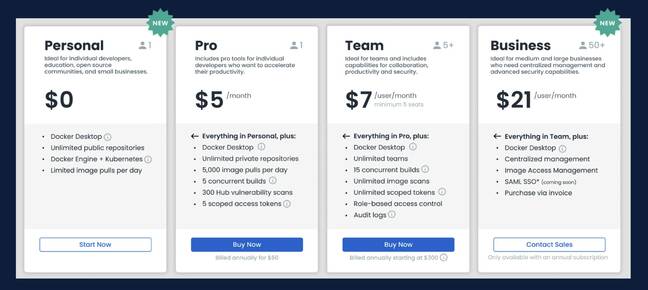Docker will restrict use of the free version of its Docker Desktop utility to individuals or small businesses, and has introduced a new more expensive subscription, as it searches for a sustainable business model.
The company has renamed its Free plan to “Personal” and now requires that businesses with 250 or more employees, or higher than $10m in annual revenue, must use a paid subscription if they require Docker Desktop. There are no changes to the command-line Docker Engine. The $5/month Pro and $7/month Teams subscriptions continue as before, but a new $21/month Business subscription adds features including centralized management, single sign-on, and enhanced security.
The Docker platform has a number of components, of which Docker Desktop is just one part. Docker images define the contents of containers. Docker containers are runnable instances of images. The Docker daemon is a background application that manages and runs Docker images and containers. The Docker client is a command-line utility that calls the API of the Docker daemon. Docker registries contain images, and the Docker Hub is a widely used public registry. Much of Docker (but not Desktop) is open source under the Apache v2 licence.
[…]
This is the type of Open Source licensing scheme that I started talking about being necessary in 2017

Robin Edgar
Organisational Structures | Technology and Science | Military, IT and Lifestyle consultancy | Social, Broadcast & Cross Media | Flying aircraft

